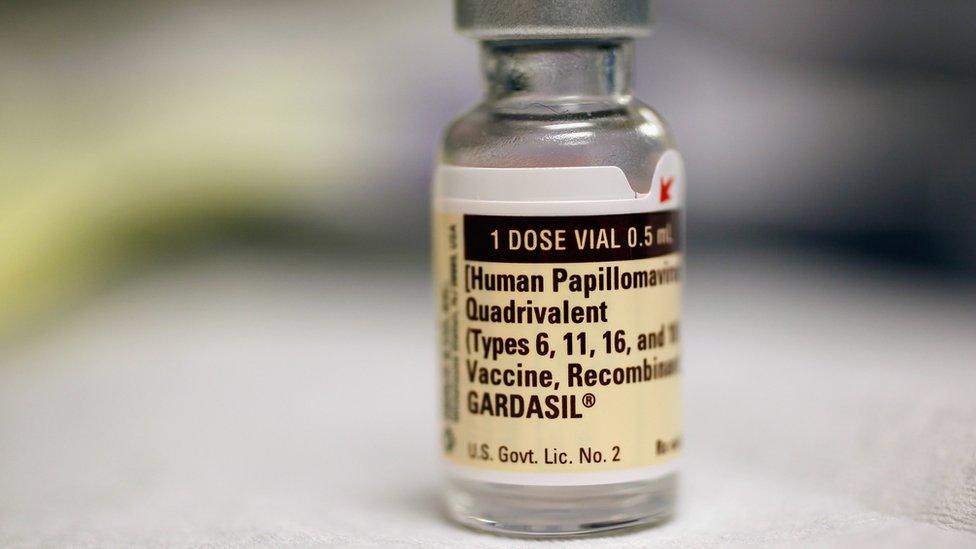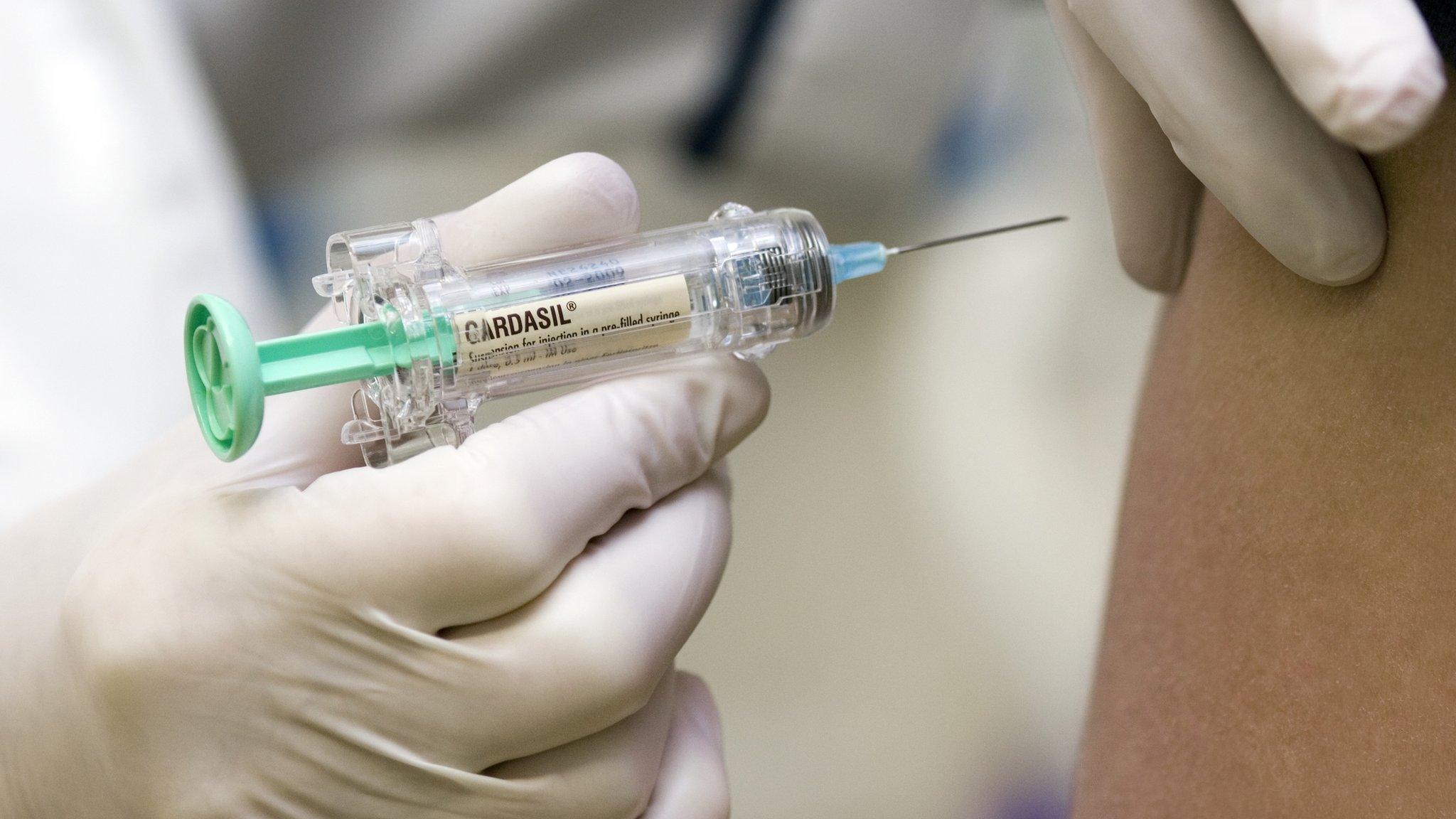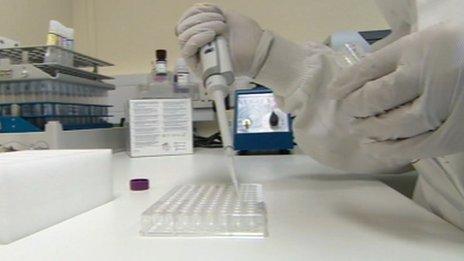Vaccine credited with HPV virus reduction in Scotland
- Published
Researchers say high take-up of the vaccine has led to a fall in high-risk strands of HPV
A campaign to vaccinate girls against a cancer-causing sexually transmitted infection has led to a dramatic drop in reported cases.
Researchers have found a 90% fall in levels of the human papilloma virus (HPV) in Scottish women since the vaccine was made available in 2008.
HPV virus types are thought to account for about 90% of cervical cancers.
Scientists hope the drop in HPV cases will lead to a significant drop in future cervical cancer cases.
The researchers, led by senior epidemiologist Dr Kevin Pollock at Health Protection Scotland, said they hoped to see a decrease in new diagnoses within a year.
He told BBC Radio Scotland: "The two HPV types we were vaccinating against - HPV 16 and HPV 18 - cause about 70% to 80% of cervical cancers within Scotland but the vaccine has exceeded our expectations because it appears to have knocked out another three high-risk HPV types which cause about 10% of cervical cancers.
"So we do forecast within the next few years a 90% reduction in cervical cancer within Scotland."
Researchers compared the cervical screening and vaccination records of women born in 1995, who had been vaccinated as teenagers, with those from unvaccinated women born between 1989 and 1990.
They found just 0.5% of women from the 1995 group tested positive for the virus, compared with 21.4% of women born before 1990.
The study also showed evidence that the vaccine protected against three other high-risk HPV genotypes involved in the development of cervical cancer.
'Significant impact'
The research will be presented to the Microbiology Society's annual conference in Edinburgh on Wednesday by Dr Kate Cuschieri, director of the Scottish HPV Reference Lab.
She said: "These new findings indicate that the positive impact of the HPV vaccine may be even greater than we initially thought.
"Collectively, these data demonstrate the significant and continued benefits of the HPV vaccination programme in Scotland, which has achieved a consistent and high uptake of around 90% in 12 to 13-year-old girls."
Dr Pollock added: "The very high uptake of the HPV vaccine is strongly associated with these massive reductions in high-risk HPV types that are known to cause approximately 90% of cervical cancer in Scottish women."
He said the virus was also known to cause a number of other cancers, including vulvovaginal, anal and a subset of head and neck cancers.
"These results suggest that this vaccine will also have a significant impact on these cancers in the years ahead", he said.
The research, which was funded by the Scottish government, looked at samples from more than 20,000 women, making it one of the largest population-based studies on the impact of the vaccine.
There were 388 new cases of cervical cancer in Scotland in 2014.
- Published29 August 2016

- Published26 May 2016

- Published12 August 2012
